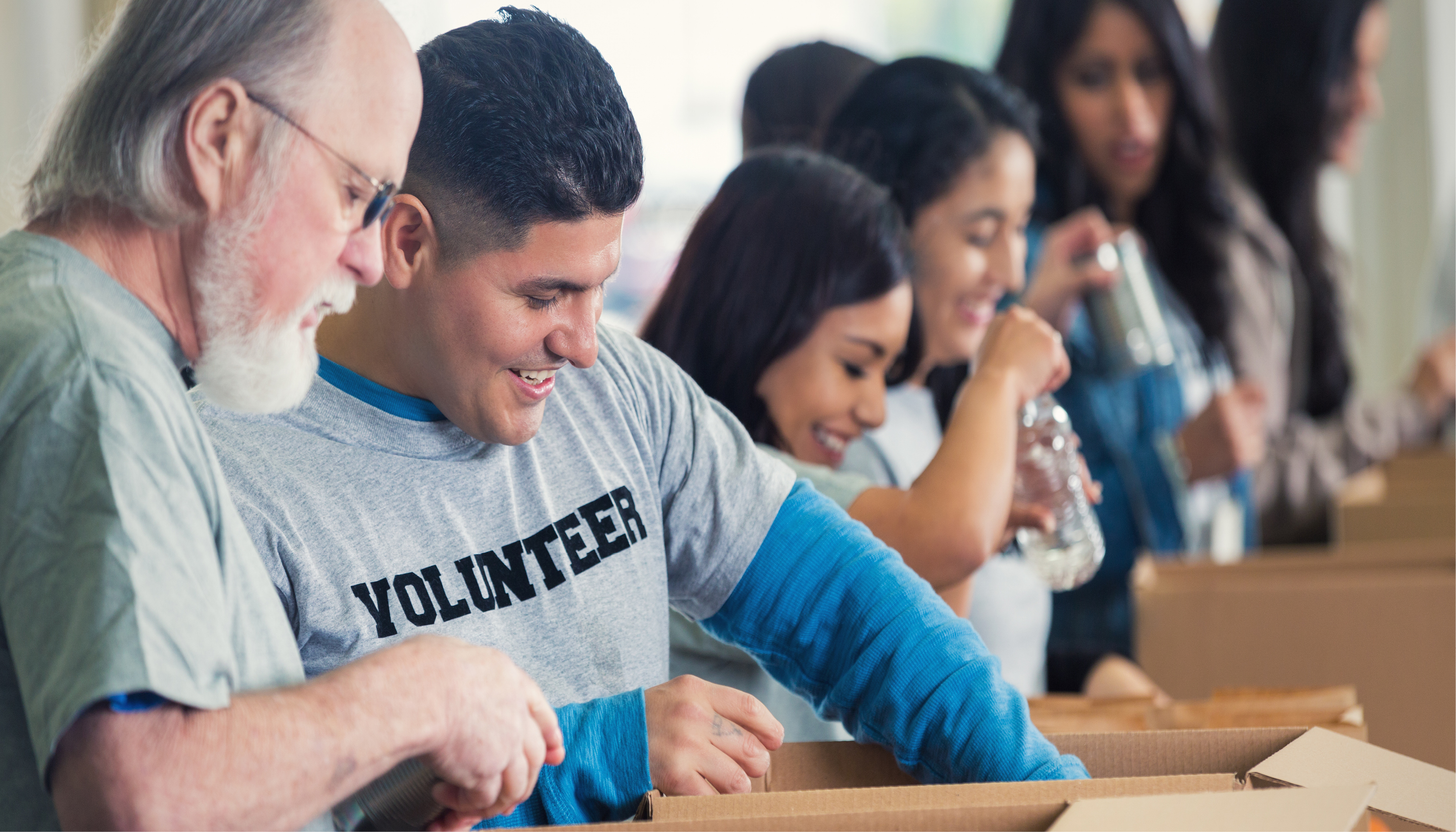
The are a time of personal reflection; we gaze at the past year and envision the year that is to come. As we stand on the threshold of a new year, we reaffirm our commitment to through the actions we will take in the year to come.
During the High Holidays, many Jews observe two fast days: Yom Kippur and the lesser known Fast of Gedalia, which commemorates the assassination of the last governor of Judea prior to the destruction of the First Temple. One of the key purposes of these fast days is to free us from our daily needs, giving us time to concentrate on the tasks at hand: , , and .
At this most holy time of year, as many of us willingly deny ourselves sustenance, we also recognize some of the brokenness in our world. Rather than focusing on our own appetites during our ritual fast, we can turn our thoughts and our actions to the millions of people around the world who cry out daily in hunger.
You can incorporate social action themes into your Yom Kippur observance in the following ways:
Make your fast meaningful
On Yom Kippur, it is customary to fast so that we free ourselves from our daily needs. As we refrain from pleasure and deny our bodies nourishment, we hope to draw closer to God. During the climax of our worship on Yom Kippur morning, we read the stirring words of the prophet Isaiah, who challenges us to use this fast day as a reminder that as long as hunger and want still exist in our world, our fasts and prayers are incomplete.
“Is this the fast I seek? A day of self-affliction?... Is not THIS the fast I look for: to unlock the shackles of injustice, to undo the fetters of bondage, to let the oppressed go free, and to break every cruel chain? Is it not to share your bread with the hungry and to bring the homeless poor into your house?” (Isaiah 58:5-7).
Hunger remains something many people face today throughout the world. This Yom Kippur, dedicate your fast to the millions of people worldwide who face hunger and starvation on a daily basis by donating to a hunger awareness/advocacy organization. (Some families donate the amount of the amount of money they would have spent to feed their families on their fast day.) One such organization, Mazon: A Jewish Response to Hunger, offers projects that connect hunger-related education and advocacy with the High Holidays.
Feed the hungry
You might also consider these activities to help feed the hungry in your own community:
- Volunteer at a local food pantry or homeless shelter
- Join a meal delivery program to deliver hot meals to home-bound individuals
- Coordinate a High Holiday food drive
- Ask friends and family to join you in saving unused manufacturers’ coupons for food and household products. Once you’ve collected a substantial amount (make sure they’re not expired!), donate these coupons to an agency that purchases food for the needy.
Save a life
There is much discussion in our High Holiday prayers of life and death. We read: “On Rosh HaShanah it is written, and on Yom Kippur it is sealed, who shall live and who shall die.”
- Sign up for a CPR or first aid class so you will be prepared to try to save a life should the need arise
- Donate blood or platelets to help those in need of transfusions
- Nearly 18 people die each day waiting for an organ transplant, yet one organ donor can save as many as eight lives. Make sure your driver’s license designates you as an organ donor.
- Register with the National Bone Marrow Registry to see if you are a match for a patient in need of a bone marrow transplant. The process is quick and virtually risk-free to the donor.
Focus on criminal justice reform
On Yom Kippur, Jews all over the world fast and spend the day praying. The fast is meant to clear our minds, fostering a deep connection with God as we repent and return to the best versions of ourselves. The Talmud teaches us that the merit in the fast day lies in the charity dispensed. This teaches us that our fasting, self-reflection, and atonement alone are not complete without acts of loving-kindness and compassion for the world and our fellow human beings.
Between Rosh HaShanah and Yom Kippur, it is said that we have the power to change our fate. This is why we say in the Unetaneh Tokef that “repentance, prayer, and charity temper judgment’s severe decree.” These three acts are necessary to lead us down the path of redemption. During the High Holidays, as we account for our sins over the past year, we can also turn our attention to the criminal justice system and ask if everyone who passes through it is treated equally and justly.
- Write and send Rosh HaShanah and holiday cards to Jewish prisoners
- Share your dormant Judaica items with those in need through Jewish Prisoner Services International's t'shuvah outreach efforts, which aims to help prisoners feel connected to their Jewish faith. Check your home or congregation's storerooms, attics, and closets for dormant Judaica such as books, Torah study materials, Torah commentaries, Hebrew-English dictionaries, pocket-sized siddurim, tefillin, tallitot, kippot, Hebrew workbooks, and books on Jewish customs and traditions.
- Organize attorneys in your congregation to provide pro-bono or flexible-fee legal aid in your community for clients who cannot afford adequate representation
